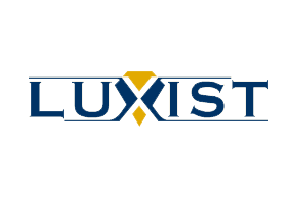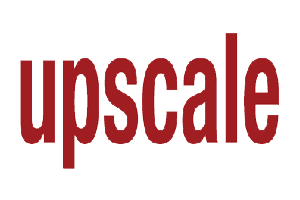Do You Still Have to Work Out After Liposuction?
December 21st, 2023 | Posted in: Liposuction |
For many embarking on the journey to attain the ideal body shape, liposuction emerges as a transformative option to bid farewell to stubborn pockets of fat. Liposuction, a cosmetic surgery designed to remove excess fat deposits, undoubtedly offers immediate visual changes. Yet, as the allure of a streamlined silhouette beckons, it’s essential to discern whether the sculpted results can be sustained without the ongoing commitment to physical activity.

Why Do I Have to Exercise After Liposuction?
What will happen if you don’t eat healthy foods or exercise after liposuction? Will you still gain weight?
Of course you will!
Whether you’ve already had liposuction or are just thinking about getting the procedure, it’s important to note that liposuction contours your body and removes stubborn fat. Still, it does NOT prevent you from gaining new weight in other body areas. You’ll have to maintain your newly contoured body on your own, through a healthy diet and regular exercise routine.
What Are the Dangers of Visceral Fat?
When you remove fat cells through liposuction in any particular body part, the loss is permanent, and the fat cells will not return to that area.
With one part of your body fat disabled, the fat cells in other parts of the body will “pick up the slack,” perhaps creating a disproportionate figure. But your figure is only a cosmetic issue; doctors are concerned about the health danger of increasing visceral fat.
Visceral fat is a type of fat deep inside the body that surrounds the abdominal organs, including the stomach, liver, and intestines. This fat is often called “hidden fat” since it is not always visible. Visceral fat is thought to be more harmful than subcutaneous fat, which is the fat just below the skin’s surface. Studies have linked visceral fat with the development of metabolic syndrome, a cluster of symptoms that include high blood pressure, unhealthy cholesterol levels, and insulin resistance, all of which increase the risk for heart disease.
After liposuction, exercise is essential to maintain your results and prevent an increase in visceral fat.
How Soon Can I Exercise After My Liposuction Procedure?
Immediately following your procedure, you must prioritize rest to aid your liposuction recovery.
Most doctors recommend that patients start or return to an exercise regimen about two to three weeks after liposuction to enhance their best results. Light general activities, such as work and school, can be resumed around one week after liposuction.
Remember that while exercise is important, you are still recovering from a surgical procedure and should take things at a pace that benefits healing. Follow the guidelines of when you can start increasing various physical activities, but don’t strain yourself if you experience pain. Listening to your body is essential.
Light Physical Activity
Although you’ll be resting and taking it easy, it is vital to maintain light physical activity during the first one to two days after surgery. Low-impact activities like general household activities and easy walking are great for avoiding blood clots. Physicians generally recommend you exercise at 25 percent of your average effort level during the first recovery phase.
Aerobic Activity
Light aerobic exercise—mainly walking—is recommended in the first two days post-surgery. The most important thing to do is listen to your body’s signals and not push yourself beyond your personal level of comfort while you are healing. You will return to your old exercise routine slowly and at a much lower intensity level than you are probably used to, gradually building up to the 6-week mark when you can resume higher impact activities such as running and aerobics.
Resistance Exercises
Resistance exercises that do not impact the area of the body that was treated surgically can be resumed as early as the second week after surgery. As with aerobic exercise, resistance routines should be entered gradually and increased only with great care and attention to how your body responds. Medical attention is necessary if any pain, discomfort, or drainage results from resistance exercise. Once the incisions heal and the bruises disappear—about six weeks after surgery—resistance exercises can be resumed as tolerated around surgical areas.
Takeaway: A Combination of Diet and Gentle Exercise Will Help You Achieve Your Best Results After Liposuction Surgery
With maintaining a healthy diet, it’s unrealistic to expect to cut out all unhealthy foods forever. Instead, focus on a realistic balance of consuming both healthy foods and “unhealthy” foods that you may typically crave.
Some Healthy Foods to Eat During Your Recovery
- High-protein foods (lean meats, protein shakes, Greek yogurt, vegetable proteins)
- Fresh fruits and vegetables
- Healthy fats (raw nuts/seeds, avocado, extra virgin olive oil)
- Whole grains (beans/lentils, brown rice, oat-fashion oatmeal)
- Drink plenty of water (you may also drink herbal teas and green tea)
Foods to Avoid
- Processed food (convenience foods/prepackaged items, frozen dinners, canned vegetables, cereal, fast food
- High-sodium foods, such as canned soup, packaged meat (lunch meat, bacon, salami), cheese, snack foods (popcorn, pretzels)
- Saturated fats (butter, dried coconut, dry-roasted nuts)
- Sugary foods
- Avoid soda, fruit juices, and other processed drinks
Liposuction in Beverly Hills
Liposuction at Beverly Hills Plastic Surgery can remove stubborn fat from commonly treated areas as well as other places you might not have thought of that are challenging to target with diet and exercise alone. The satisfaction of losing even a small amount of weight with liposuction may be just the encouragement you need to proceed with a healthier lifestyle and lose even more weight! If you have further questions regarding liposuction in Beverly Hills, contact us online or at (310) 888-8087 to request a consultation today!









































